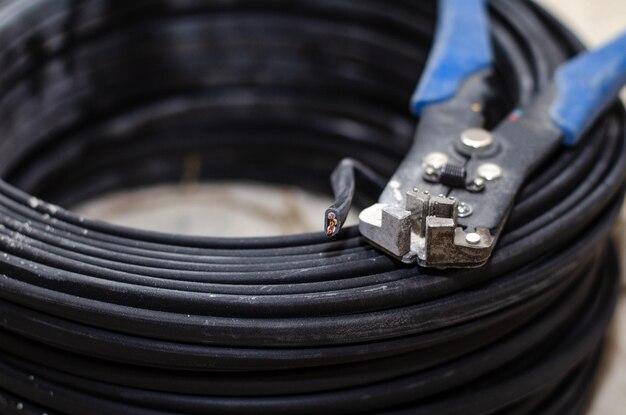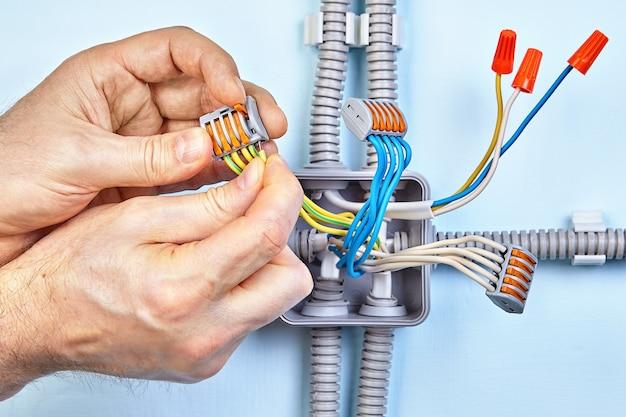Silver, with its shimmering luster and conductivity, seems like a logical choice for making electrical wires. However, surprisingly, it is not the metal of choice when it comes to wiring our homes and powering our devices. Instead, copper and aluminum take the spotlight in the world of electrical wiring. But why is silver left behind in this important role? In this blog post, we will delve into the reasons behind the absence of silver as a preferred material for electrical wires and explore why copper and aluminum have become the go-to options.
Before we uncover the rationale behind the dominance of copper and aluminum, let’s debunk the myth that silver is completely useless in the realm of electrical wiring. Silver wire does find its applications, albeit in niche industries where its unique properties are valued. But when it comes to everyday electrical systems, copper and aluminum take center stage for a variety of reasons. So, without further ado, let us dive into the compelling reasons why silver is not used for making electrical wires.

Why Silver isn’t the Wire Whisperer
The Surprising Truth About Silver in Electrical Wires
When it comes to electrical wires, we often think of copper as the go-to metal. But have you ever wondered why silver, with all its shine and prestige, isn’t used instead? Well, it turns out there’s more to this decision than meets the eye. So, put on your thinking caps and get ready to uncover the electrifying truth!
Conductivity Conundrum: Copper vs. Silver
The Power Players
Both copper and silver are highly conductive metals, making them perfect candidates for carrying electrical currents. With their ability to shuffle electrons effortlessly, they are like the rockstars of the conductive world. So, why does copper take center stage while silver waits in the wings?
The Cost Showdown
Picture this: you’re at a luxury boutique, eyeing a dazzling silver bracelet. Your heart skips a beat until you check the price tag and find that it costs an arm and a leg. Turns out, silver is a costlier metal compared to copper, and that’s where the plot thickens.
The Economics of Electricity
Silver, Silver Everywhere
Did you know that silver is an incredibly scarce resource on our dear planet? Yes, it’s true. While it may be tempting to bedazzle our electrical infrastructure with this shiny metal, the limited availability would send shockwaves through our wallets.
Copper to the Rescue
Enter copper, the unsung hero of electrical conductivity. This reddish-brown beauty is abundant, making it cost-effective for large-scale applications like electrical wiring. Copper’s availability and affordability have made it the MVP of the electrical world, while silver enjoys its fame in other areas.
The Heat Is On
Silver: A Melting Masterpiece
Picture this: the summer sun is scorching, and you’re running your air conditioning to beat the heat. Now imagine if your electrical wires started melting like an ice cream cone on a hot day. Not the most comforting thought, is it?
Copper: Cool Under Pressure
One of copper’s key advantages lies in its ability to withstand high temperatures. It’s like our trusted friend who doesn’t break a sweat even in the hottest of situations. Copper’s high melting point makes it the ideal candidate for electrical wires, ensuring a safe and reliable flow of power.
A Fiery Finale
Now that we’ve uncovered the sparks behind the decision to use copper instead of silver for electrical wires, we can appreciate the intricate dance between conductivity, cost, and practicality. While silver may have its moment to shine in other realms, copper reigns supreme in the electrifying world of wires. So next time you flip a switch or power up your device, remember the unsung hero that connects us all: copper, our dependable conductor extraordinaire.

FAQ: Why Isn’t Silver Used for Making Electrical Wires
Why is Copper Used in Wires and Not Silver
When it comes to conducting electricity, copper is the superstar of the show. Its excellent conductivity, durability, and affordability make it the go-to choice for making electrical wires. Silver, on the other hand, may be a precious metal, but it falls short when it comes to certain practical aspects.
Why Aluminium is preferred over Copper
Aluminium has gained popularity as an alternative to copper in some electrical applications. It is a lightweight metal that offers cost savings and can handle high electrical currents. Additionally, aluminium has a higher conductivity-to-weight ratio compared to copper, making it an attractive option for long-distance power transmission.
How long does aluminum wiring last
Aluminium wiring, when properly installed and maintained, can last for many years. However, it is important to note that aluminium is prone to a phenomenon called “aluminium oxidation,” which can increase resistance and potentially create a fire hazard over time. Regular inspections and maintenance are crucial to ensure the longevity and safety of aluminium wiring.
Why is aluminum wire dangerous
Aluminium wire was commonly used in residential electrical installations during the 1960s and 1970s. However, it gained a reputation for being hazardous due to its tendency to expand and contract with temperature changes. This expansion can lead to loose connections, overheating, and even fire hazards. It is essential to take proper precautions if your home has aluminium wiring.
When did Canada ban aluminum wiring
In Canada, aluminum wiring was widely installed in homes during the 1960s and 1970s. However, due to safety concerns, it was later banned for use in branch circuits in residential installations. This ban came into effect in the early 1980s, aiming to mitigate the risks associated with aluminium wiring.
Is it OK to buy a house with aluminum wiring
While it is not an immediate deal breaker, purchasing a house with aluminium wiring requires careful consideration. It is essential to have a thorough inspection by a certified electrician to assess the condition of the wiring. If properly maintained and appropriately addressed, aluminium wiring can be safe and functional. However, it is essential to take precautions and keep up with regular maintenance.
What is silver wire used for
Although silver is not commonly used for making electrical wires, it does have its applications. Silver is highly conductive and has excellent corrosion resistance, making it suitable for specialized applications like high-frequency circuits, radio frequency shielding, and certain scientific instruments. Its high cost, however, limits its usage for everyday electrical wiring needs.
Is aluminum wiring up to code
Aluminium wiring, if installed following the proper guidelines and regulations, can meet the necessary electrical codes. However, it requires specific installation techniques, such as using aluminum-compatible connectors and proper insulation, to ensure safety and code compliance. It is crucial to consult with a certified electrician to ensure the installation meets all the required codes and safety standards.
Is aluminum wiring a deal breaker
Aluminium wiring in a house does not necessarily mean you should walk away from a great deal. However, it is crucial to consider the potential risks associated with aluminium wiring and factor in the costs of any necessary repairs or upgrades. Conducting a thorough inspection by a qualified electrician can provide valuable insights and help you make an informed decision.
How much does it cost to pigtail aluminum wiring
Pigtailing, a common method for addressing aluminium wiring concerns, involves connecting a short section of copper wire to the existing aluminium wiring. The cost of pigtail installation can vary depending on factors such as the amount of wiring involved, the complexity of the electrical system, and labor costs in your area. It is recommended to obtain multiple quotes from licensed electricians to determine an accurate cost estimate.
Can I connect copper wire to silver wire
While it may sound like a jewelry-making project, connecting copper wire to silver wire in electrical installations is not advisable. Mixing different metals can create unwanted interactions and lead to corrosion, loose connections, and potential hazards. It is important to use proper connectors and follow industry standards to ensure a safe and reliable electrical system.
Hopefully, this comprehensive FAQ has shed some light on the reasons why silver is not used for making electrical wires. Remember, for everyday electrical wiring needs, copper remains the tried and true champion, while aluminium offers an alternative for specific applications. Stay informed, prioritize safety, and consult with professionals for any electrical concerns.
